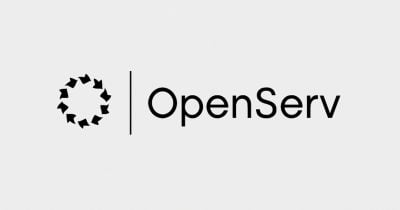On Sep. 30, Lex Fridman shared a four and a half hour long interview with Telegram CEO and founder Pavel Durov. They touched upon various topics, including censorship, government pressure, and freedom of speech, among others. Some portions of their discussion were dedicated to the crypto space.
Summary
- Durov said he invested in Bitcoin back in 2013. He revealed that his lifestyle was supported by his BTC investment, as Telegram didn’t bring money until 2024.
- During an interview, Durov explained that Telegram gifts are “socially relevant NFTs” as they exist in an ecosystem used by a billion-plus users, and people can use gifts on Telegram to show off.
- In a softball interview, Fridman stressed that he admires Durov as a prominent and fearless freedom of speech advocate. He didn’t touch upon claims that tie Durov to FSB and other controversies associated with him.
Pavel Durov’s Bitcoin investment
During the Lex Fridman interview, Durov said he is sure the Bitcoin price will hit $1,000,000 at some point. He recalled that in 2013, he invested around $2,000,000 in Bitcoin. The price crumbled the next year, but he kept telling his friends he was not going to sell Bitcoin as he believed in this new thing. Bitcoin matters to him due to its crucial features:
“I think this is the way money should work. Nobody can confiscate your Bitcoin from you. Nobody can censor you for political reasons.”
Pavel noted that it was his Bitcoin investment, not Telegram, that allowed him to stay afloat, live in nice locations, and fly private.
Here’s my 4+ hour conversation with Pavel Durov (@durov), founder and CEO of Telegram. This was one of the most fascinating and powerful conversations I’ve ever had in my life.
We discuss everything from his philosophy on freedom to government bureaucracies, intelligence… pic.twitter.com/DDBTnE7A2t
— Lex Fridman (@lexfridman) September 30, 2025
Blockchain and Telegram
A section of the interview was dedicated to Telegram’s blockchain-based features. According to Durov, Telegram is the first app that allows users to directly own their digital identity and username via NFTs and smart contracts.
Speaking about TON, Durov noted that the Telegram team worked on it in 2018 and 2019. Telegram needed blockchain “because we believe in blockchain, we think it’s one of the technologies that enable freedom.” Durov said that Bitcoin’s and Ethereum’s scalability problems made him think of Telegram’s custom layer1 blockchain fit for Telegram’s multi-million userbase.
Telegram was forced to hand the TON project to the open community after the U.S. Securities and Exchange Commission ruled that Grams, native tokens of the TON blockchain, are securities. Now, Toncoins help fund Telegram, as ads are paid with TON tokens, and channels that earn from ads share half of the revenue with Telegram.
Durov claimed that Telegram gifts can be defined as a “reinvented socially relevant NFT integrated into a billion-user ecosystem, but at the same time available on chain, transferable, which you can own directly, also based on TON.”
He elaborated on the way Telegram gifts are better NFTs:
“We didn’t like the old school NFTs. First of all, they were not relevant socially because, okay, you have an NFT, where do you demonstrate it? At Telegram, a telegram gift is there next to your name. It’s part of your digital identity on Telegram. And then you can create collections of gifts and show it off on your profile page.”
@snoopdogg takes a dogg to know a dogg, I can give you some tips 😉 best discussed where privacy is king. I’ll hit you on TG.
— Pavel Durov (@durov) June 30, 2025
According to Durov, many high-profile influencers flocked to Telegram to launch their gifts after Snoop Dogg sold $12 million worth of his gifts in some 30 minutes.
Durov admitted he loses money because of Telegram
Fridman outlined that Durov spent millions of his own money on the project to keep it aligned with his views. For instance, it allowed Durov to keep Telegram free of user data-based ads. Fridman noted that only in 2024 did Telegram become profitable and asked how Telegram makes money.
Pavel answered that to become profitable, the Telegram team had to be innovative. It allowed them not to resort to dubious business activities involving exploiting personal data of users, something that most of [Telegram’s] competitors do.”
He added that it is sad for him that exploiting user activity data, metadata, and other types of personal information for ad targeting became synonymous with the Internet industry.
While Telegram became profitable, Durov admitted that he lost more money investing in Telegram than he got back. At some point, Telegram chose to go with a subscription model. Durov decided to keep all the existing features untouched while adding some extras for paid subscribers, like business channels or advanced users.
After the launch in 2022, 15 million Telegram users got paid subscriptions. In 2025, Durov said the company will receive around $500 million from premium subscriptions.
Another source of revenue is the 5% commission charged from third-party developers launching mini-apps and bots in Telegram. However, Durov suggests it doesn’t bring much money; rather, it’s more valuable as a way to attract more users.
Pavel Durov as a freedom of speech advocate
Fridman introduced Durov as a fighter for privacy and freedom of communication, continuing his mission despite immense pressure from several governments. In the 2010s, Durov had to fight with the Russian government. In 2024, he was arrested in Paris. Ever since, he has had tensions with the French authorities.
Durov told Fridman that French authorities pushed him to block support groups for presidential candidates in Moldova and Romania. According to Durov, he denied interference while blocking a few groups that violated the platform’s rules. Durov was told that his actions could impact the continuing investigation against him in France. Here’s what he told Fridman:
“After Telegram banned the few channels that were in violation of our rules in Moldova, they talked to my judge, the investigative judge in this investigation that has been started against me, and told the judge that they could think about me. Which I found very confusing and, in a way, shocking because these two matters have nothing in common. Why would anyone talk to an investigative judge who is trying to find out whether Telegram did a good enough job in removing illegal content in France? What does Moldova have to do with it?”
Telegram licenses 5,000 IP addresses from Kremlin contractors – Electrontelecom 🤔🤔 pic.twitter.com/RDZcbJUd0V
— zeo (@patliberal) October 1, 2025
While Fridman and many others call Durov a freedom of speech advocate fighting against government oppression, some paint him in different colors. For instance, Russian nongovernment election monitoring groups claim that Telegram blocks their bots. In June 2025, the Important Stories investigation pointed to messengers’ ties with FSB.




